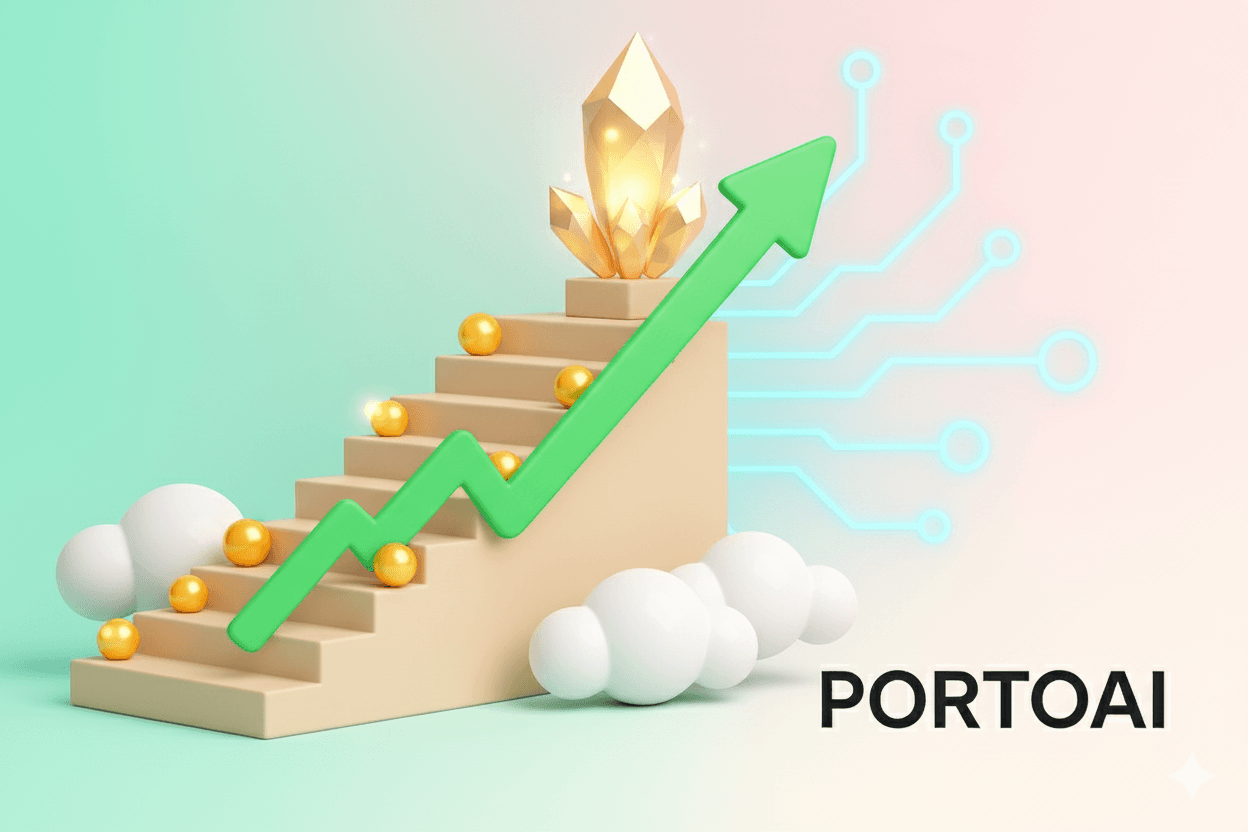Why Indian Investors Should Diversify Overseas: A Data-Driven Approach

Venkateshwar Jambula
Lead Market Researcher
4 min read
•Published on September 11, 2024
•Why Indian Investors Should Diversify Overseas: A Data-Driven Approach
In the dynamic landscape of financial markets, volatility is an inherent characteristic. As economies navigate recovery and investors regain confidence, strategic portfolio diversification becomes paramount for achieving long-term investment success. While a traditional bias towards domestic markets is common, a purely localized approach can expose portfolios to significant risks, especially during periods of domestic economic slowdown.
At PortoAI, we advocate for a data-driven, globally informed investment strategy. This article explores four critical reasons why sophisticated investors, including retail investors, financial advisors, and fund managers, should consider diversifying their portfolios into international markets, particularly US equities.
It is crucial to remember that the decision to diversify and the extent of such diversification are deeply personal, depending on individual risk profiles and investment objectives. This content serves as a reference to inform your strategy, not as direct investment advice.
1. Access to a Broader Spectrum of Growth Opportunities
Consider the global brands that shape our daily lives: Amazon, Netflix, Samsung, Google (Alphabet), Meta (Facebook), and Twitter. Many Indian investors utilize these services and contribute to their revenue streams, yet often lack direct investment exposure to these market leaders. While India presents a compelling growth narrative, many of the world's largest and most innovative companies, particularly in technology and consumer sectors, are domiciled elsewhere, primarily in the United States.
These global giants often possess market capitalizations significantly exceeding those of their Indian counterparts. Investing in companies at the forefront of global market trends can provide a substantial uplift to overall portfolio returns. PortoAI's Market Lens can help identify these leading global companies, offering a wider universe of investment possibilities beyond domestic borders.
2. Enhanced Portfolio Diversification and Risk Mitigation
Diversifying into markets with a history of lower volatility than domestic markets can be a powerful tool for risk management. Historically, major international markets, especially the US, exhibit a low correlation with Indian equity markets. Data suggests the correlation between indices like the S&P 500 and NASDAQ 100 with Indian benchmarks can be less than 15%.
This low correlation means that when Indian investments face downturns, overseas assets may perform differently, potentially cushioning the overall portfolio impact. Furthermore, the US market offers a wider array of treasury-related products and lower-cost investment vehicles, such as ETFs with expense ratios as low as 0.03%. A well-diversified portfolio, informed by robust data analysis, aims to maximize returns while minimizing risk. PortoAI's risk console provides the tools to assess and manage this diversification effectively.
3. The Strategic Advantage of the US Dollar
Globally, the US Dollar (USD) is recognized as a relatively safe-haven currency. Despite fluctuations, the US economy has demonstrated remarkable resilience, consistently re-emerging stronger from economic challenges. In contrast, the Indian Rupee (INR) can be susceptible to external factors such as global oil prices, domestic political stability, and import levels driven by monsoon performance.
Historically, the INR has experienced depreciation against the USD. Over the past 25 years, the INR has depreciated significantly against the USD, impacting the real returns for investors holding assets denominated in INR. Investing in US equities, therefore, offers a dual benefit: potential capital appreciation from stock performance and a hedge against INR depreciation. This currency advantage can significantly amplify returns when repatriating funds to India, especially during periods of Indian economic headwinds.
4. Embracing the Modern, Interconnected Investment Landscape
In today's interconnected world, investment strategies must account for global social, political, and macroeconomic factors. The emergence of a multi-polar world order underscores the need for a global investment perspective. Even events originating in one region, such as the early stages of the COVID-19 pandemic in China, can rapidly influence global markets.
By investing overseas, investors can fill critical gaps in their portfolios and achieve more consistent returns. Modern investors, empowered by platforms like PortoAI, stay informed about global developments, enabling them to make more resilient and forward-looking investment decisions. Understanding global market dynamics is no longer optional; it is essential for navigating the complexities of modern investing.
Conclusion: Building a Globally Resilient Portfolio
While a home bias is natural, a truly sophisticated investment strategy requires a global outlook. By considering overseas diversification, particularly into established markets like the US, Indian investors can unlock a wider range of opportunities, enhance risk management, and leverage currency advantages. Thorough due diligence and data-driven analysis are crucial for selecting individual investments.
PortoAI empowers investors with the AI-driven insights and analytical tools necessary to construct and manage globally diversified portfolios with confidence. Embrace a modern, data-informed approach to investing and position your portfolio for long-term success in an increasingly interconnected world.
Blog
Investment Insights and Tips
Explore our latest investment strategies and insights.

Stocks
Master Investment Psychology: Control Emotions for Smarter Stock Decisions
The Psychology of Stock Investment: Understanding Emotions That Affect Investment Decisions A stock market is a funny place – both the seller and buye...
Venkateshwar Jambula
November 7, 2024
•4 min read

Stocks
Power Grid India Stock: Analyzing PGCIL's Price Movements & Future
The Rise and Fall: Unraveling the Power Grid Corporation of India Stock Price The Power Grid Corporation of India Stock Price (PGCIL) has experienced ...
Venkateshwar Jambula
November 6, 2024
•10 min read

Stocks
Are Multibagger Stocks Still Possible in 2025? Your AI Guide
These 6 Multibagger Stocks Exploded in 2025 — Is Your Portfolio Still in 2022? Till June 2025, the benchmark Sensex has risen by around 4%, reflecting...
Venkateshwar Jambula
November 5, 2024
•11 min read

Stocks
Top 5 Indian Growth Stocks & Sectors for 2025: AI-Driven Insights
Top 5 Best Growth Stocks in India & Sectors to Watch in 2025 You see the market correction in late 2024 and early 2025 was driven by weak economic...
Venkateshwar Jambula
November 4, 2024
•9 min read